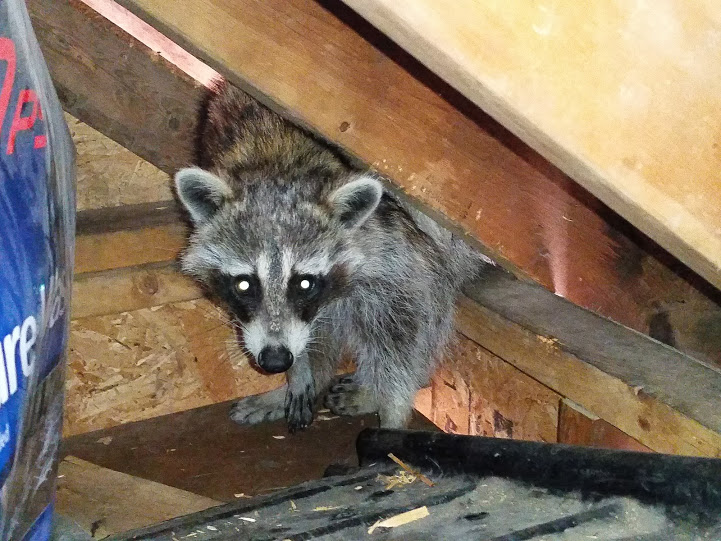The thought of a rabid raccoon on your property may be a haunting visual, but how likely is it for a raccoon to have rabies? Learn more about this viral disease and how to keep your property safe with professional raccoon removal in Whitby. Stay safe without resorting to the inhumane treatment of your local wildlife with the help of Skedaddle.
Rabies and Other Diseases
First, it’s important to note that rabies is relatively rare. In 2018, there were only 50 confirmed raccoon cases in all of southwestern Ontario. Raccoons are the most common rabies carrier in Canada, but the threat is fairly rare. Other animals also carry rabies in Canada. Raccoons, bats, foxes and skunks are the most common, but most mammals can become carriers. Rabies doesn’t affect fish, birds or other non-mammal animals, but these wild animals can carry their own infectious diseases that are transmittable to humans.
Raccoons can transmit many other diseases, however, and even a healthy raccoon can be a threat if it feels cornered. Avoid the risk of rabies, roundworm, distemper and other issues by treating every raccoon in your home or on your property as a serious threat.
Signs of Rabies
Rabies primarily spreads through bites or saliva from an infected animal. Raccoons and other animals can present two very different forms of rabies. These two forms are from the same viral infection, so watch out for both the furious form and dumb form of rabies.
A raccoon may exhibit extreme excitement or aggression as part of the furious form of rabies. An infected raccoon is usually thin and feeble but may still appear energetic and agitated. Some raccoons even attempt to attack other animals or gnaw at their own limbs.
Other symptoms are classified as the dumb form of rabies. These include actions that appear as depression. Lethargic raccoons may avoid social interactions with their own kind but lose their fear of humans. This form of rabies can also cause partial paralysis.
Any animals infected with rabies present these and similar symptoms. It’s possible for humans to contract rabies from exposure to infected animals. Look for these symptoms of possible rabies in yourself or anyone in your family:
- Fever
- Vomiting
- Confusion and anxiety
- Excessive salivation
- Hallucinations
- Insomnia
- Partial paralysis
Seek immediate medical attention if you experience any of these symptoms. If you get bitten by any wild animal, have it checked out right away to ensure you haven’t been infected with rabies or another disease. It’s best to treat any scratch, bite or other interaction with a wild animal as a serious issue.
Why You Should Still Use Caution
Even a healthy raccoon can put up a fight if it feels cornered. Whether you see a wild animal in your home or roaming around your yard, it’s best to work with a professional wildlife control team. At Skedaddle Humane Wildlife Control, we offer humane options for discouraging raccoons from setting up a home near yours.
Don’t resort to dangerous, ineffective or inhumane DIY animal removal solutions. Work with our local experts to easily identify the issue, offer a humane removal strategy and thoroughly clean any affected areas to avoid the risk of transmitting rabies and other diseases. Finally, we provide prevention strategies to tell local raccoons and other animals that your home has no vacancy.
Contact Skedaddle Today
Keep your family and pets safe without inhumane animal treatment. Learn more about our raccoon removal services today. While rabies is relatively rare in your area, expert raccoon removal in Whitby is a great way to avoid the risk of infection. Sleep easily knowing that your home is free from wild animals and the risk of rabies transmission.





